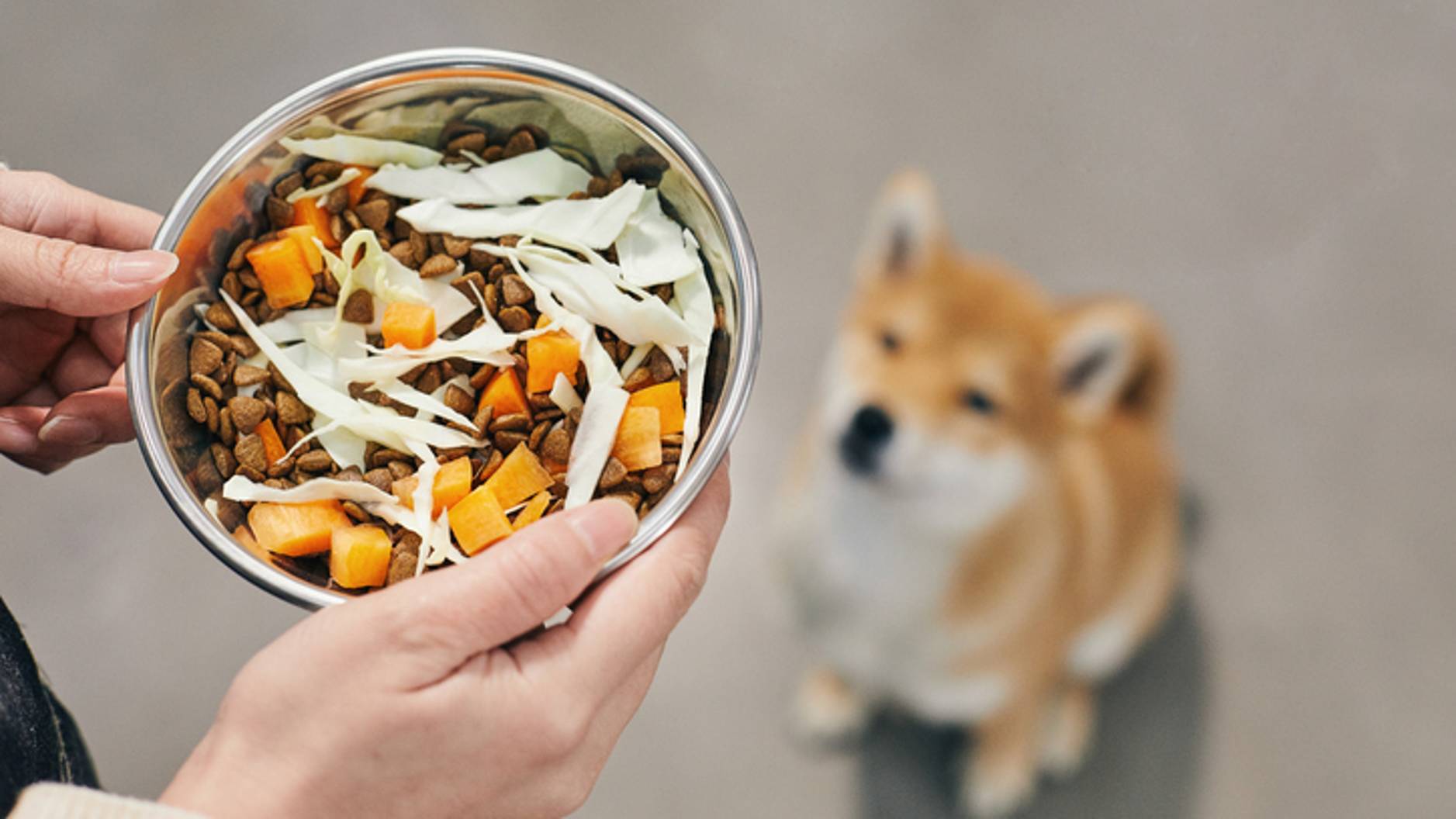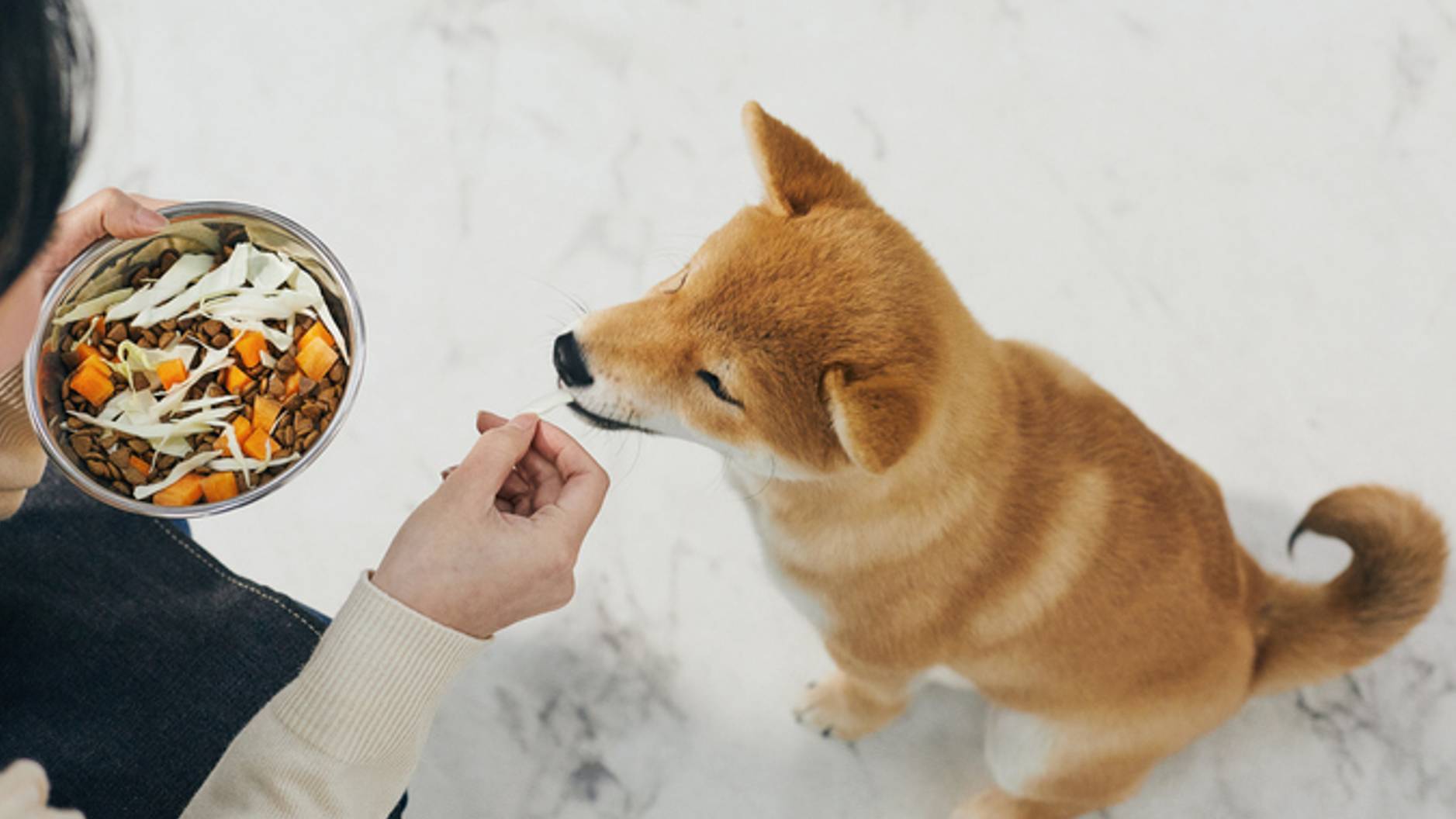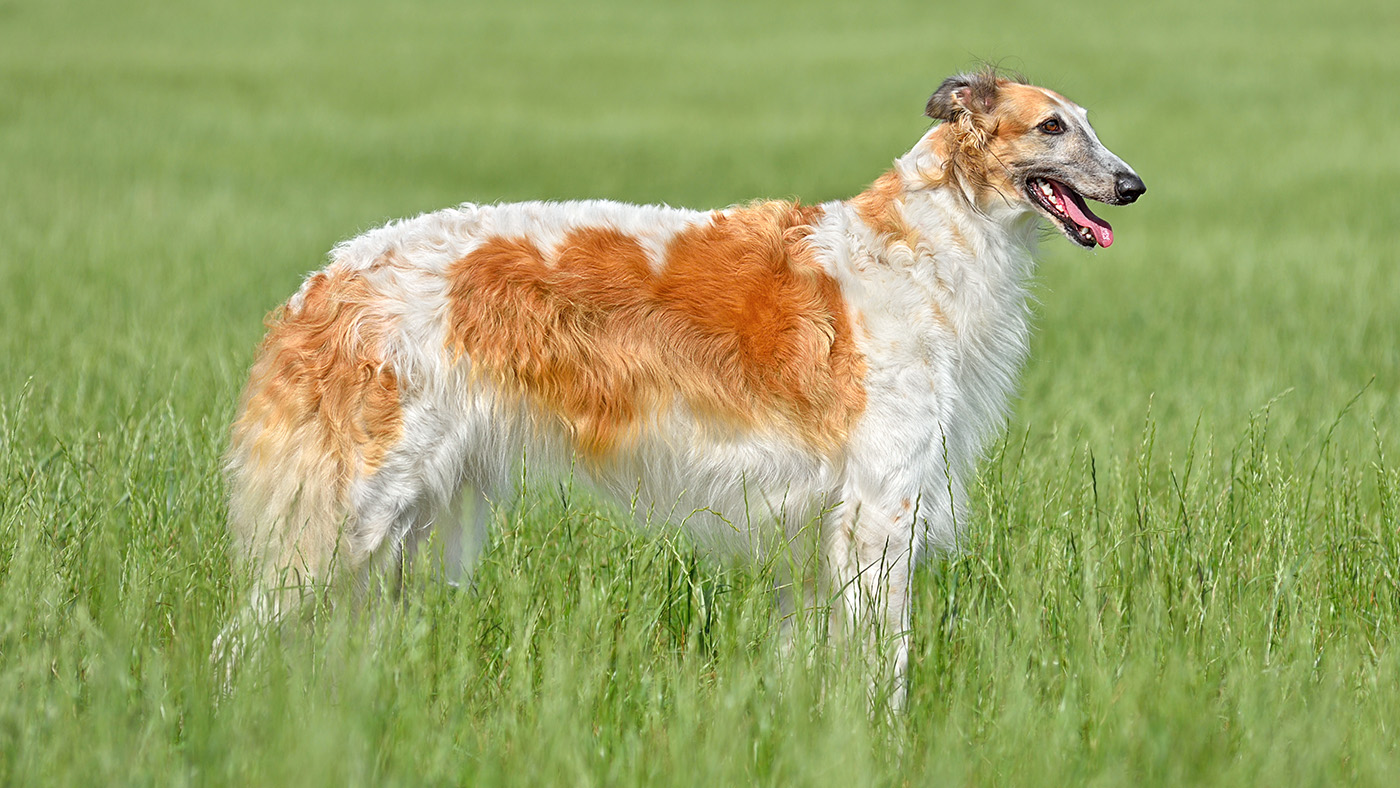Can dogs eat butternut squash? Find out if they can gorge on this gourd
This sweet, nutty fall vegetable is popular with people but the key question is: can dogs eat butternut squash, too?

You certainly wouldn’t be alone if you've found yourself pondering the question: can dogs eat butternut squash? High in fiber, vitamins, and minerals, this tasty and creamy vegetable makes for a nutritious and delicious treat for your canine companion, as long as it's prepared correctly.
Feeding your pooch the best dog food available is a relatively straightforward task compared to trying to unearth exactly what human foods can dogs eat. The good news is, there are plenty of foods we humans love that are equally good for our dogs, as long as they're given in appropriate quantities and served up the right way.
When you'd like to reward your pup with something a little different from the best dog treats lining the supermarket shelves, butternut squash is a great choice. It's packed full of goodness and yet it has a rich and velvety texture that will leave your hound feeling like they're getting something special.
Read on get the scoop on everything you need to know about this magnificent vegetable, including a few of our favorite ways of preparing it.
Is butternut squash good for dogs?
Yes, providing that it’s cooked. And that’s ensuring that it is cooked plain, without any added salt, sugar, or fats. Butternut squash can be boiled, steamed, baked, roasted, and even microwaved for your dog to enjoy.
Just like many other fruits and vegetables, butternut squash can be an incredibly healthy addition to your dog’s diet.
Rich in fibre and potassium, as well as vitamin’s A and C, butternut squash helps support the health of your pooch’s immune system, muscles, skin, and vision, to name a few.
They also have the power to reduce inflammation and even help prevent the development of certain cancers.
Similar to pumpkin, butternut squash can also aid in maintaining your canine’s digestive system. Many owners will often pop a spoonful of cooked butternut squash on their canine’s regular food if they are suffering from diarrhea.
When is butternut squash bad for dogs?
Butternut squash can be quite problematic if given to dogs raw. Not only because it wouldn’t taste very nice but it’s also quite tough to digest - just like it would be for us humans, too. Since it’s so hard, large chunks of it can also be a choking hazard or cause intestinal blockages if not chewed enough.
It’s also best to avoid feeding your dog the skin or seeds of the butternut squash, as these aren’t easily digested either. It’s not that the seeds are toxic if eaten (so do not worry if they’ve wolfed one or two down by mistake), it’s just that they can irritate your dog's throat due to the sharp point.
If your beloved four-legged friend has managed to snaffle some seasoned butternut squash - which may have been cooked in fat with salt or sugar - fear not, a bite or two should be fairly harmless.
However, if the bright vegetable was seasoned with nutmeg, this may aggravate your pooches nervous system and cause severe stomach upset. In this scenario, it’s best to call your veterinarian immediately as nutmeg can be poisonous to dogs.

How to prepare butternut squash
If you're wanting to start introducing vegetables to your dog, butternut squash is a great place to start. It's both soft and sweet, so most dogs will gobble it up without any complaint! But you want to make sure you prepare it properly to increase the likelihood of them eating it.
Firstly, if you're going to be leaving the skin on and if your budget can stretch to it, get an organic squash as this way you can avoid chemical pesticides and herbicides. And believe it or not, yes, it's okay to leave the skin on and give that to your dog as well. In fact, that's where most of the nutrients are and once cooked, it will go soft and be easily digestible.
Our favorite method is to cut the squash into small 1-2 inch cubes and then either roast it or boil it. If you're roasting it, feel free to coat it with a tablespoon of coconut oil, which is perfectly safe for dogs, and then pop in the oven on 375 degrees Fahrenheit for around 25-30 minutes or until tender. To boil, simply pop in hot water for around 15-20 minutes.
Remember to scoop out the seeds and guts and discard these before roasting or boiling the squash.
Tips on feeding your dog butternut squash
If you start to notice that regular dog treats are no longer taking your canine’s fancy, then butternut squash can make for a good substitute. There are plenty of recipes for homemade dog treats out there, but here are a few simple suggestions for your dog to try that includes butternut squash:
- Suggestion 1 - bake slices of butternut squash on a low heat to dehydrate them and make your dog a delicious chewy treat.
- Suggestion 2 - boil and mash some butternut squash and, once it’s cooled down, scoop a spoonful into their favourite Kong toy.
- Suggestion 3 - cooked and mashed butternut squash also make great chilly treats. Just smush spoonfuls in an ice cube tray and pop them in the freezer overnight.
Or for something really special, why not try this amazing Veggie Turducken recipe from the creative crew over at Rover.
Dog-friendly Veggie Turducken
For Thanksgiving, Christmas, or any occasion you want to spoil your pup by dishing them up something fancy, this Veggie Turducken recipe is bound to earn you some serious brownie points!
We love that it keeps well in the fridge and can be easily served up in slices. Just remember that it's meant to supplement your dog's regular daily diet and is not to be used as a meal replacement.
As with any new food - whether that be treats or main meals - it’s advised that you consult with your veterinarian first to ensure that it's safe for your dog.
PetsRadar Newsletter
Get the best advice, tips and top tech for your beloved Pets
Chloe is a freelance writer, editor, and proofreader, who has more than ten years’ experience in creating animal-focussed content. From National Geographic to Animal Planet, Chloe’s passion for creating fact-filled features all about wildlife and the environment is evident. But it’s not just wild animals that Chloe’s fascinated by. Having written more than 75 articles for PetsRadar - and having her very own four-legged friend by her side - it’s no wonder that her love of dogs (and, of course, cats) has grown exponentially.
Her website, www.chloemaywrites.com, and social media pages - @ChloeMayWrites on Instagram, Facebook, and Twitter - showcase her knowledge through daily facts and trivia tidbits. For example, did you know that snails have teeth?!

